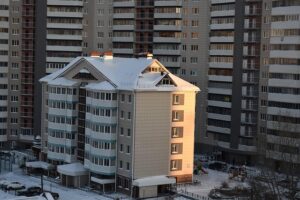Navigating Eco-Friendly Living: The Average Price of EC Rentals in Singapore’s Green Housing Market
Exploring the eco-conscious shift in urban living, Singapore’s rental market has seen a significant uptake in Executive Condominium (EC) rentals, reflecting a growing preference for sustainable and cost-effective housing solutions. This article delves into th…….

Exploring the eco-conscious shift in urban living, Singapore’s rental market has seen a significant uptake in Executive Condominium (EC) rentals, reflecting a growing preference for sustainable and cost-effective housing solutions. This article delves into the dynamics of the EC rental segment, shedding light on the average price of EC rentals, their role in promoting eco-friendly living, and how various factors influence these prices across different neighborhoods. From the rental process to environmental and tenant benefits, readers will gain a comprehensive understanding of why ECs are becoming a preferred choice for those seeking a balance between affordability and sustainability. Additionally, we will examine future trends and projections for this burgeoning market segment in Singapore.
- Understanding the Eco-Friendly Living Trend in Singapore's Rental Market
- The Role of ECs (Executive Condominiums) in Sustainable Urban Housing
- Average Price of EC Rentals in Singapore: A Comprehensive Analysis
- Factors Influencing the Pricing of EC Rentals in Different Neighbourhoods
- The Process of Renting an Executive Condominium in Singapore
- Benefits of Living in an EC for Tenants and the Environment
- Future Trends and Projections for the EC Rental Market in Singapore
Understanding the Eco-Friendly Living Trend in Singapore's Rental Market

The Role of ECs (Executive Condominiums) in Sustainable Urban Housing

Average Price of EC Rentals in Singapore: A Comprehensive Analysis

Factors Influencing the Pricing of EC Rentals in Different Neighbourhoods

The Process of Renting an Executive Condominium in Singapore

Navigating the rental market in Singapore, particularly for an Executive Condominium (EC), involves a process distinct from both public housing and private condominiums. Prospective tenants interested in renting an EC must first ascertain its eligibility as they are hybrid homes designed for Singaporeans who may later sell their flats on the open market. To initiate the rental process, one must identify available EC units that meet their preferences and budget, given the average price of EC in Singapore can vary significantly based on location, size, and amenities.
Once a suitable EC is found, potential tenants should proceed with an application through the Housing & Development Board (HDB). They will need to provide necessary documentation, including proof of income and identity, as well as fulfill the minimum occupancy period requirements. The rental process also involves a security deposit, which is typically two months’ worth of rent. It is advisable to engage a real estate agent specializing in EC rentals to navigate this process efficiently, as they can offer insights into competitive pricing and assist with contract negotiations. With the average price of EC in Singapore being a significant financial commitment, understanding the rental terms and conditions is crucial for both tenants and landlords to avoid disputes. The rental market for ECs in Singapore is dynamic, with prices influenced by factors such as market demand, economic conditions, and the maturity of the development. Thus, staying informed about the average price trends is key for anyone looking to rent an EC in this vibrant city-state.
Benefits of Living in an EC for Tenants and the Environment

Future Trends and Projections for the EC Rental Market in Singapore

The Executive Condominium (EC) rental market in Singapore has exhibited resilience and adaptability, reflecting broader trends within the property sector. As of recent years, the average price of EC units has been on an upward trajectory, driven by a combination of factors including government regulations, market demand, and the ongoing evolution of housing preferences. Looking ahead, projections suggest that the EC rental market will continue to experience growth, underpinned by several key trends.
Firstly, the introduction of new EC projects is anticipated to expand the supply of rental units in the market. These developments are strategically positioned to cater to the varying needs of tenants, from young families to professionals seeking a balance between affordability and amenities. Additionally, the government’s housing policies may continue to influence the EC landscape, with measures aimed at balancing demand and maintaining a stable property market. As such, investors and renters alike should keep an eye on the average price of ECs in Singapore, as fluctuations could be indicative of broader economic shifts and policy changes. With a focus on sustainability and smart living solutions, the future EC rental market is poised to offer increasingly attractive options for those seeking a home that grows with their needs.







